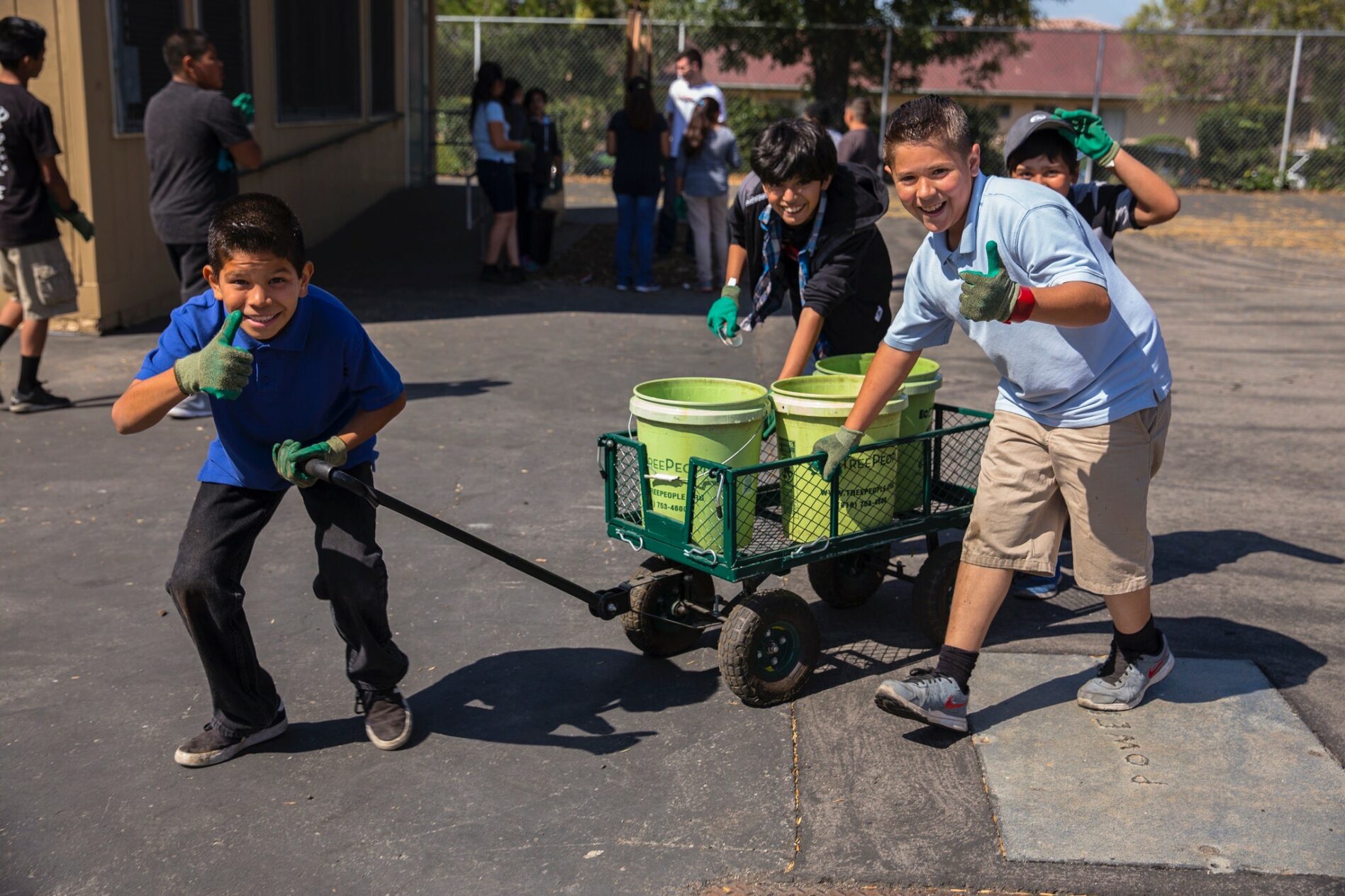

State Policy Work
Systematic changes to school greening will only be achieved through policy change.
Across California, millions of youth and thousands of teachers go to schools that are covered by asphalt, prison-like, unhealthy learning environments. The time has come to address this systemic injustice and call for organized, effective leadership to address challenges with school greening, so that all youth and teachers, especially in low-income communities on the front lines of environmental justice, can attend a healthy learning environment. These communities are what this project prioritizes. All students and teachers have the right to learn and teach in a safe, clean and green environment. Not enough has been done to tackle this injustice because school districts are complex systems that are often not invited to the table. As a result, green schools, including climate and environmental literacy, are not nearly funded enough and existing funding has proven inadequate.
Why is this important?
Many schools in low-income communities are not built or equipped to support students learning and playing under these new climate stressors. Already, extreme heat causes more deaths in the U.S. than all other weather-related causes combined. The three groups expected to see the largest increases in mortality as LA’s climate heats up are the elderly, people of color, and youth. Efforts are being made across governments to institute more urban parks and preserve more natural land but there has been little to no collective action to address public schools.
Schools are often the only places where youth have the opportunity to be in outdoor green spaces, especially if they live in densely populated, park poor and environmentally burdened neighborhoods. School greening projects focus on supporting academic excellence, complement environmental education standards, improve student health and wellbeing, engage parents or guardians and community partners, and meet critical stormwater, environmental and public health objectives. TreePeople’s work in school greening prioritizes direct organizing with our school communities that centers a listen-first approach.
Through our community engagement efforts, TreePeople implements tree planting projects in neighborhoods with low-tree canopy cover. Trees are multi-beneficial and cost-effective green infrastructure, making them the most effective solution in addressing extreme heat. Studies show that shade from trees can lower surface temperatures by up to 45 degrees and trees may also provide evaporative cooling, lowering air temperatures up to 9 degrees. In addition to combating extreme heat, school greening projects address flooding and drainage issues. TreePeople released The Power of Schools in 2015 illustrating water-related challenges such as stormwater management on LAUSD campuses.
What are we doing on the state-level?
TreePeople is actively advocating for increased state funding to address this critical need. Systemic change will be achieved through policy change, community organizing, rethinking funding priorities, providing partners with better resources, and creating long-term partnerships. TreePeople has noticed gaping holes within state funding programs that neglect funding to train, provide environmental education and support the school community to learn from and take care of green infrastructure projects. TreePeople addressed this to statewide public agencies and it is now a priority initiative. TreePeople has the experience, knowledge, and the network to advance policy change, convene tough conversations and navigate these complex systems to create the large-scale change that is needed.
TreePeople advocates for environmental policy on a federal, state, and local level on issues related to urban school greening, extreme heat, and urban forestry. These initiatives include the conservation efforts of the 30x30 program, the establishment of LA’s first Chief Heat Officer, and sponsoring state-wide legislation such as AB 2566 and AB 2251. We collaborate with our partners to push for an increase in state funding to address climate risks and push for change.
Join Our Newsletter
Stay up to date with TreePeople’s newsletter. Find out about upcoming events, announcements, jobs, and other opportunities to get involved!
By submitting, you are agreeing to receive TreePeople related news and occasional communications, and agreeing to our Privacy Policy.
